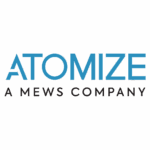Recently I read a September 2013 article by Kevin Kruse on the Forbes website, and he was asking the question, “What is leadership?”, and it made me wonder about the leadership role in the hospitality industry.
In the article, he quoted the following definitions attributed to different people:
Peter Drucker: “The only definition of a leader is someone who has followers.”
Warren Bennis: “Leadership is the capacity to translate vision into reality.”
Bill Gates: “As we look ahead into the next century, leaders will be those who empower others.”
John Maxwell: “Leadership is influence – nothing more, nothing less.”
In the article, Kruse also put forward the following definition:
“Leadership is a process of social influence, which maximizes the efforts of others, towards the achievement of a goal.”
All of these definitions of leadership speak to me for different reasons. Also resonating with me were Kruse’s points about what leadership is not:
- Leadership has nothing to do with seniority or one’s position in a company’s hierarchy.
- Leadership has nothing to do with titles.
- Leadership has nothing to do with personal attributes.
- Leadership isn’t management.
So how can we summarise all these different perspectives of leadership? I like to work with a very simple definition which I can’t claim as my brainchild, but I don’t know where or from whom I heard it either:
Leadership is moving people to a common goal
Let’s break this down and see why it works so well for me. There are four distinct messages in this simple definition:
Moving
The fact that the leader has some influence over the movement of the people working in the hotel is significant. I have written before about the importance of creating a motivating environment for people to work in. This motivating environment should hopefully inspire people to want to move and be dynamic. It should help capture the team’s natural motivation to succeed and contribute, thereby initiating momentum. And sometimes, when the situation demands more than a participative or consultative approach, pushing and pulling can also result in the desired movement forward. It is the influence that Bennis and Kruse speak about that will result in the movement we desire.
People
The leader is not moving inanimate objects around in a vacuum. These are real people with real emotions and needs. These are Drucker’s followers. They are the ones being empowered by Gates and the “social” element of Kruse’s definition. Even though the team should be moving forward, it is essential to remember that part of the leadership role is to get the best out of each individual. And the best way to do that is to adapt, through the application of different leadership tools, according to the needs of the people and the situations they are placed in.
Common
The hotel, and everyone working in the hotel, should be working to the same end. And that should be to make the business successful. If people in the teamwork at crossed purposes, it will be harder for anyone to succeed. Imagine you have eight team members; now think of them as horses attached to a wagon. If each horse is attached to a different part of the wagon and pulled in a different direction, the wagon will eventually be pulled to pieces. If nothing else, it won’t move at all. Now think of the same eight horses all pulling the wagon in the same direction…now there is momentum! And survival!
Goal
This, of course, brings us to the final element – the goal. Every team has to have something to aim for, and as we have already seen, everyone has to aim for the same thing. The goal needs to be clearly articulated and communicated transparently. This is Bennis’ vision. And hopefully also his reality. Without a goal, the team has nothing to aim for and nothing to measure their success or otherwise against.
The final point I would like to raise about leadership is the importance of balance. An effective leader needs to know how to address the needs of both the people and the goal to be effective. Being purely goal focused, at the expense of the human side of things, may reap some short-term gains, but in the long term, it cannot be sustainable because we need the team to help us achieve our goals. If they feel that they are not valued or not taken into consideration on the road to success, then they will not stay.
Also, being purely people-focused is not sustainable either. If the needs of the individual and the team are always put before the need to achieve, then I call that “a happy crew on a sinking ship”. Part of the role of the leader has to be focused on the viability of the business.
That means producing a high-performing team in a high-performing hotel is about being goal-focused but people-oriented. It is about achieving a workable balance between both approaches.
Have you got thoughts about what good leadership is in our industry? Share them in the Comments section below!
About the author
Timothy Millett’s training roles have seen him deliver programs across Australia, Asia, Europe, Africa and America, ensuring cultural sensitivity and a broad experience in lecturing, teaching and training.
A graduate of the Ecole Hôtelière de Lausanne, Switzerland, his hospitality career spans management and director positions in Front Office, Guest Relations, Public Relations, Food & Beverage and Training with organisations including the Regent of Melbourne, The Mandarin Oriental Hotel Group and Mövenpick Gastronomy. He was also a founding staff member of the internationally renowned Blue Mountains International Hotel Management School in Australia.
Tim is the Director of Training and Development at iperform, specialising in Sales and Service, Leadership and Effective Personal Organisation programs.














